COVID emergency support reached one in three Australians, says ABS
A third of Australian adults and half of adult Tasmanians had received some form of government COVID income support by May, the ABS reports.
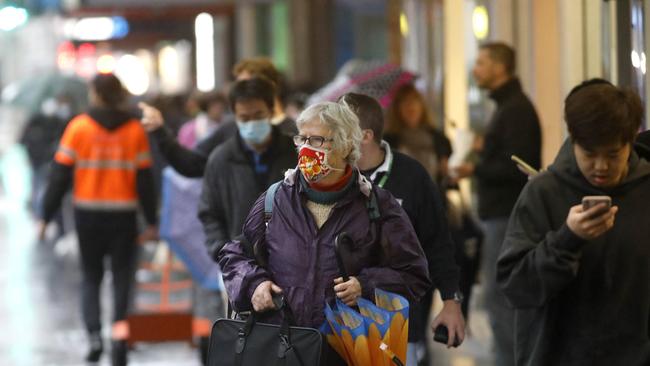
One in three Australian adults, or 6.3 million people, had received a special government handout by May, and close to half of all adult Tasmanians, new analysis of household survey data by the Australian Bureau of Statistics shows.
Adding to savings and paying household bills were the most commonly cited primary use for the stimulus payments, at 29 per cent and 28 per cent of respondents, respectively, the report said.
The next most common main use of government support was to buy food and non-alcoholic drinks, at 12 per cent.
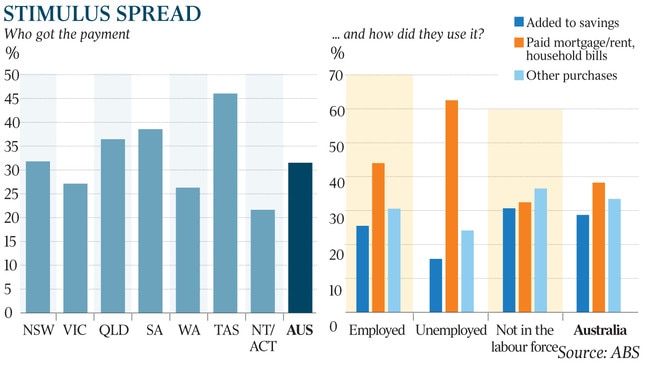
The Morrison government announced a series of emergency income support measures in March and April to help cushion the blow from the coronavirus pandemic and associated shutdowns. Among those measures was a $750 household payment, a cash flow boost for small and medium-sized businesses, and the JobKeeper wage subsidy program.
Women were more likely to have received payments than men, at 37 per cent to 27 per cent, the ABS reports showed.
About four in 10 Australians without a qualification beyond secondary schooling said they had received support, against a little over a quarter of those with a higher qualification.
Older Australians were more likely to have used government support to build up their cash reserves (37 per cent) than those under the age of 65 (22 per cent).
By state, 47 per cent of Tasmanians received stimulus payments in May, 39 per cent of South Australians and 37 per cent of Queenslanders. In contrast, 26 per cent of West Australians and 22 per cent of residents of the Northern Territory and ACT said they had received a payment.
Nationwide, 27 per cent of respondents said they had worked from home, with that proportion as low as 18 per cent for South Australians and as high as 44 per cent of residents in the ACT and Northern Territory.
The questionnaires were distributed between May 10 and 23 and build on existing special household surveys conducted by the ABS to provide a timely gauge of the impact of the COVID-19 pandemic.
Meanwhile, financial regulator APRA reported on Monday that Australians have cleared out more than $30bn from their super savings since late April, with the number of first-time applications topping three million.
More than a million workers have also double-dipped into their nest eggs in the past month.
Additional reporting: Cliona O’Dowd




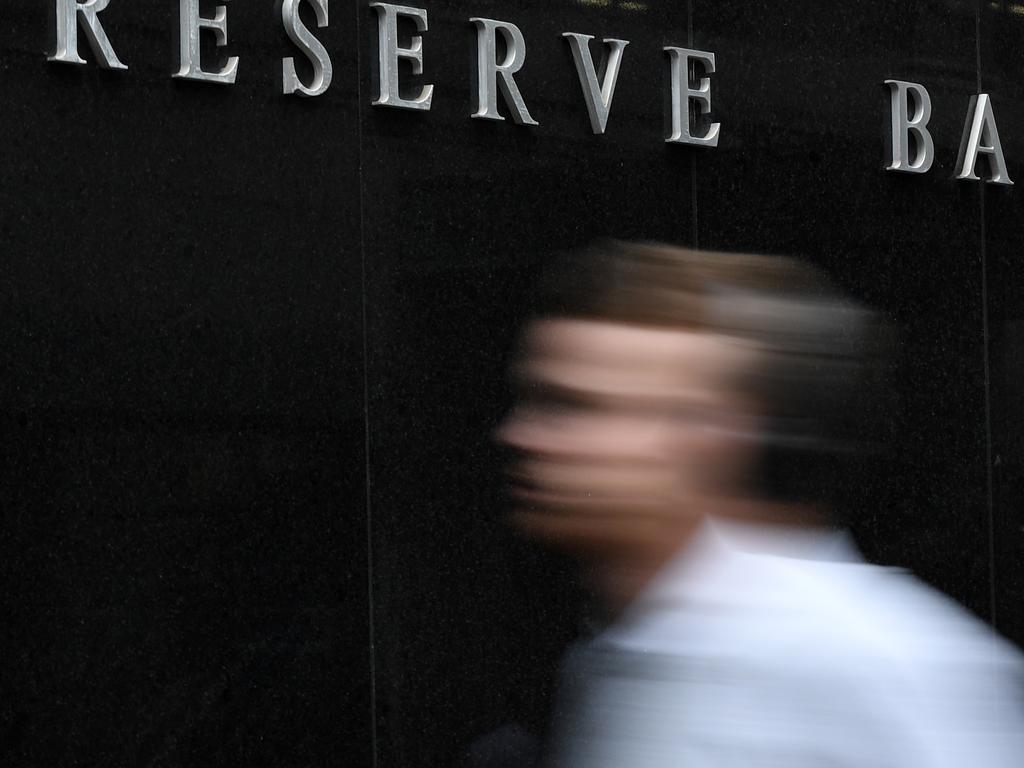
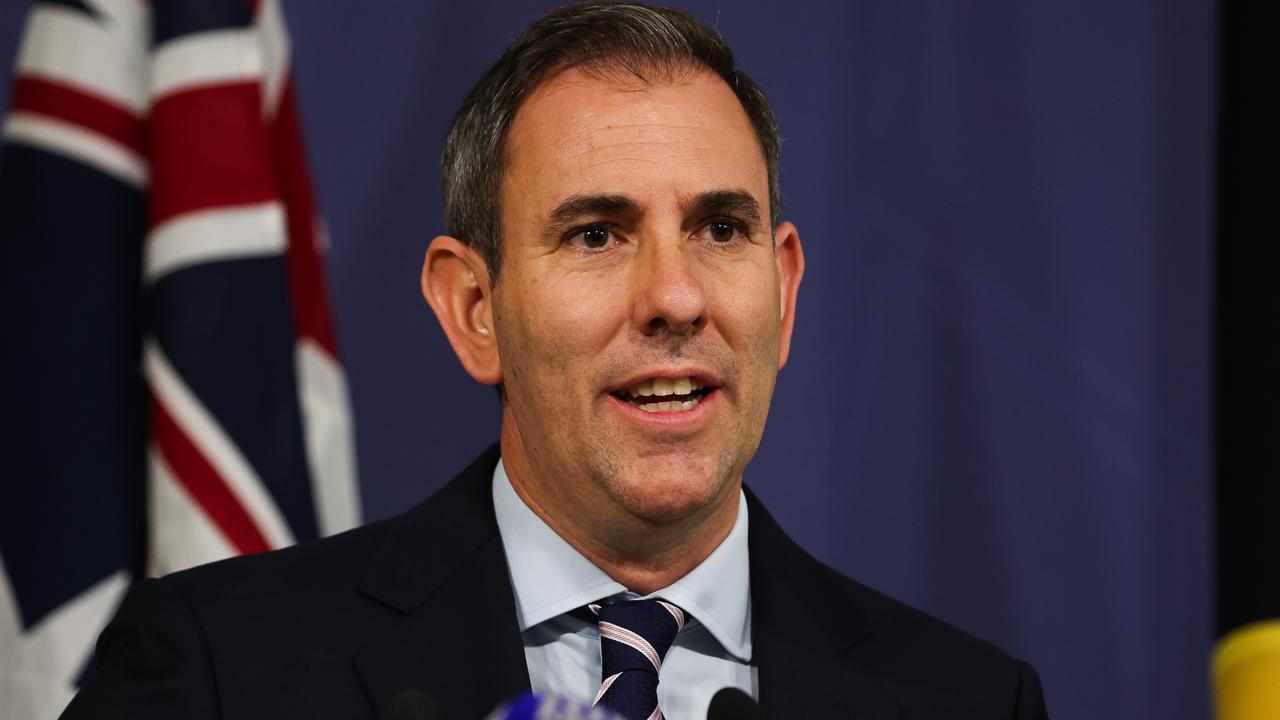
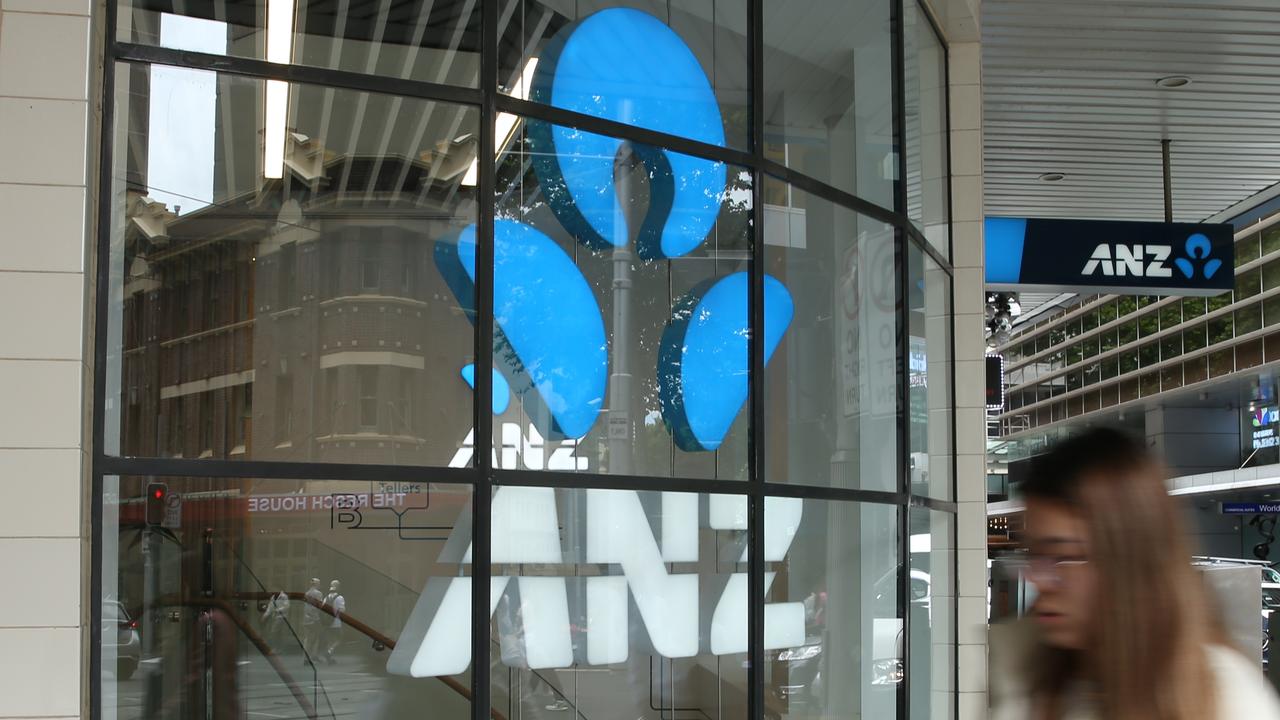
To join the conversation, please log in. Don't have an account? Register
Join the conversation, you are commenting as Logout